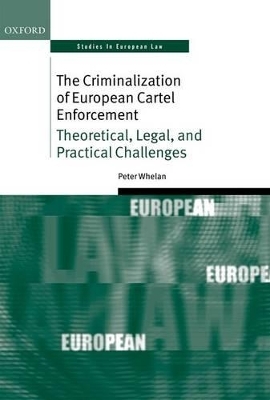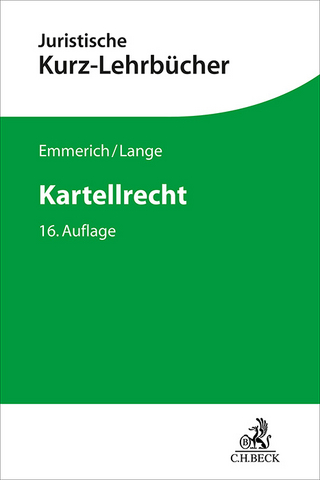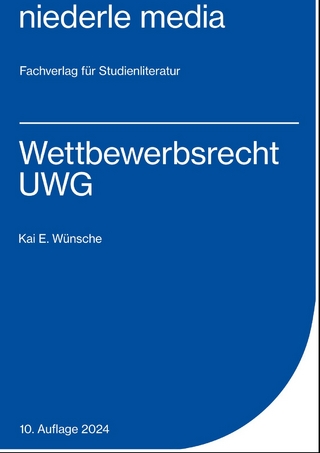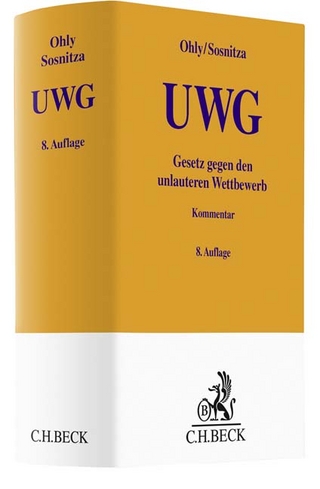
The Criminalization of European Cartel Enforcement
Oxford University Press (Verlag)
978-0-19-967006-2 (ISBN)
Cartel activity is prohibited under EU law by virtue of Article 101(1) of the Treaty on the Functioning of the European Union. Firms that violate this provision face severe punishment from those entities responsible for enforcing EU competition law: the European Commission, the national competition authorities, and the national courts. Stiff fines are regularly imposed on firms by these entities; such firm-focused punishment is an established feature of the antitrust enforcement landscape within the EU. In recent years, however, focus has also been placed on the individuals within the firms responsible for the cartel activity. It is increasingly recognized that punishment for cartel activity should be individual-focused as well as firm-focused. Accordingly, a growing tendency to criminalize cartel activity can be observed in the EU Member States.
The existence of such criminal sanctions within the EU presents a number of crucial challenges that need to be met if the underlying enforcement objectives are to be achieved in practice without violating prevailing legal norms. For a start, given the severe consequences of a custodial sentence, the employment of criminal antitrust punishment must be justifiable in principle: one must have a robust normative framework rationalizing the existence of criminal cartel sanctions. Second, for it to be legitimate, antitrust criminalization should only occur in a manner that respects the mandatory legalities applicable to the European jurisdiction in question. These include the due process rights of the accused and the principle of legal certainty. Finally, the correct practical measures (such as a criminal leniency policy and a correctly defined criminal cartel offence) need to be in place in order to ensure that the employment of criminal antitrust punishment actually achieves its aims while maintaining its legitimacy.
These three particular challenges can be conceptualized respectively as the theoretical, legal, and practical challenges of European antitrust criminalization. This book analyses these three crucial challenges so that the complexity of the process of European antitrust criminalization can be understood more accurately. In doing so, this book acknowledges that the three challenges should not be considered in isolation. In fact there is a dynamic relationship between the theoretical, legal, and practical challenges of European antitrust criminalization and an effective antitrust criminalization policy is one which recognizes and respects this complex interaction.
Dr Peter Whelan is an Associate Professor in Law at the School of Law, University of Leeds, where he is the Deputy Director of the Centre for Criminal Justice Studies. He has degrees in law from Trinity College Dublin and a PhD in Law from St John's College, University of Cambridge. A qualified US Attorney-at-Law, Peter is an expert in competition law and sits on the Editorial Boards of World Competition and the Journal of Antitrust Enforcement. Peter has published widely in specialist competition law journals, as well as in generalist law journals (including Oxford Journal of Legal Studies, Cambridge Law Journal and Modern Law Review). He has provided oral evidence on cartel criminalization to the New Zealand Parliament and was recently appointed as an International Expert by the Finnish Competition and Consumer Authority to advise it on the desirability of introducing criminal cartel sanctions in Finland. Peter is also the Managing Editor of Oxford Competition Law.
PART I: THEORETICAL CHALLENGES; PART II: LEGAL CHALLENGES; PART III: PRACTICAL CHALLENGES; CONCLUSION; ANNEXES
| Erscheint lt. Verlag | 7.8.2014 |
|---|---|
| Reihe/Serie | Oxford Studies in European Law |
| Verlagsort | Oxford |
| Sprache | englisch |
| Maße | 170 x 238 mm |
| Gewicht | 750 g |
| Themenwelt | Recht / Steuern ► EU / Internationales Recht |
| Recht / Steuern ► Wirtschaftsrecht ► Wettbewerbsrecht | |
| ISBN-10 | 0-19-967006-4 / 0199670064 |
| ISBN-13 | 978-0-19-967006-2 / 9780199670062 |
| Zustand | Neuware |
| Haben Sie eine Frage zum Produkt? |
aus dem Bereich


